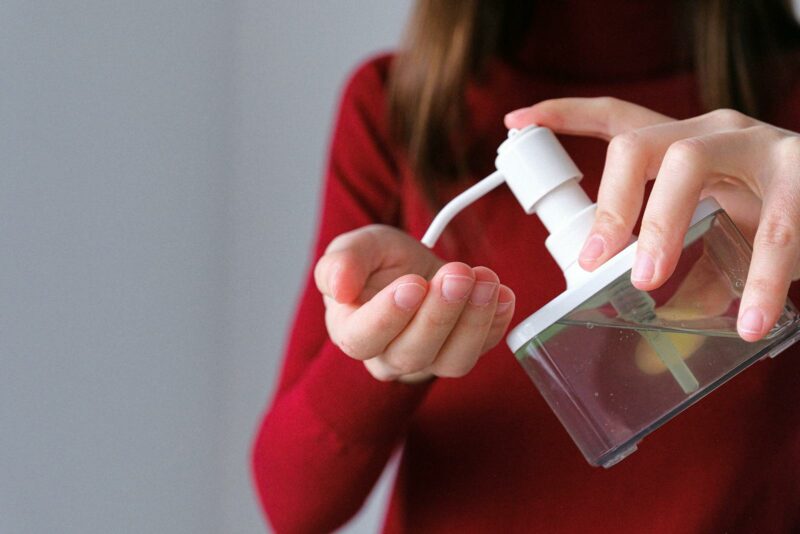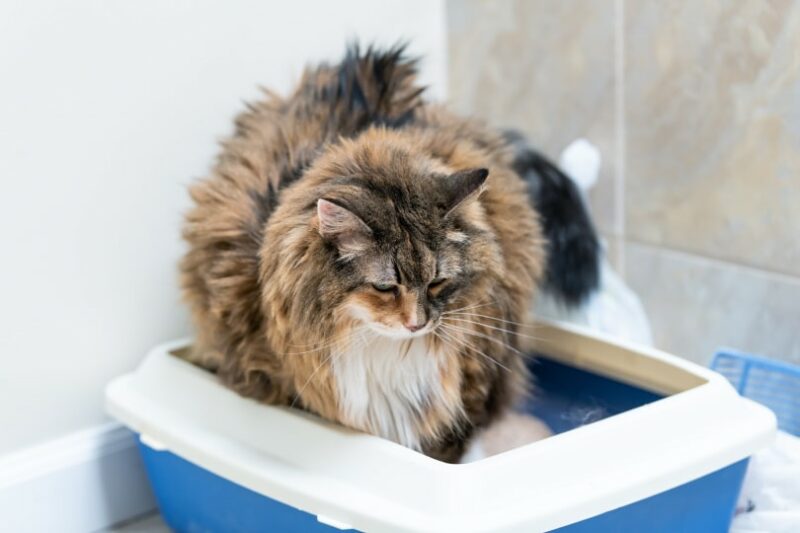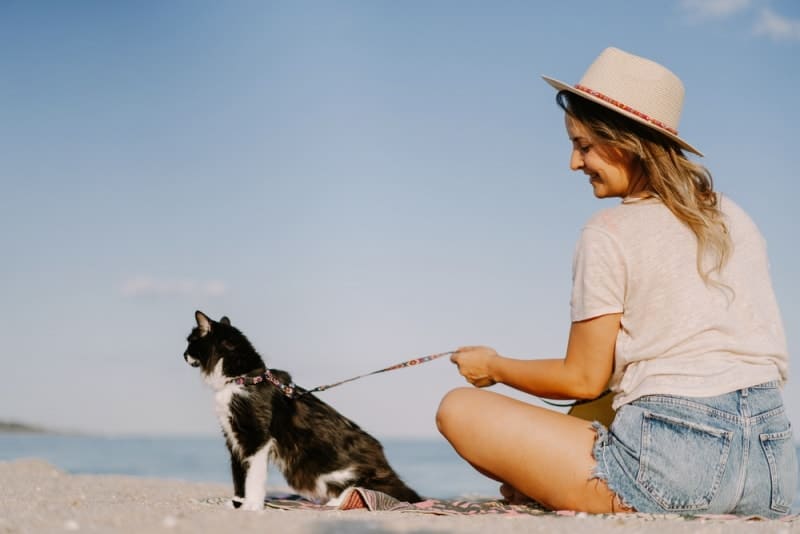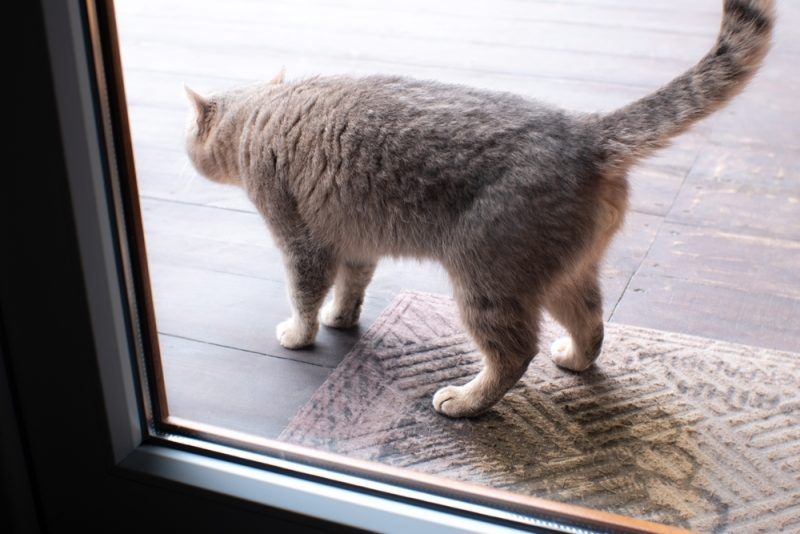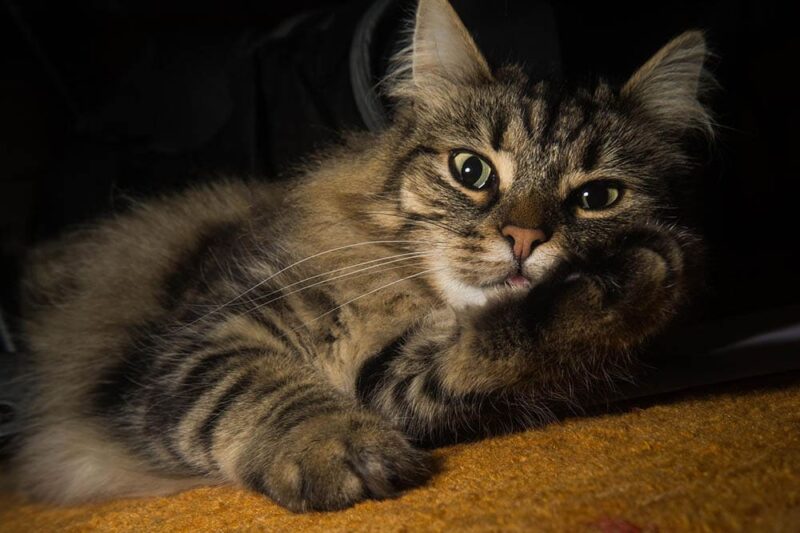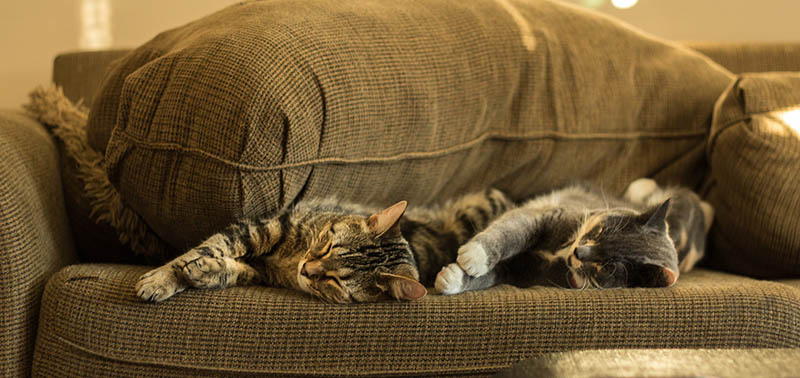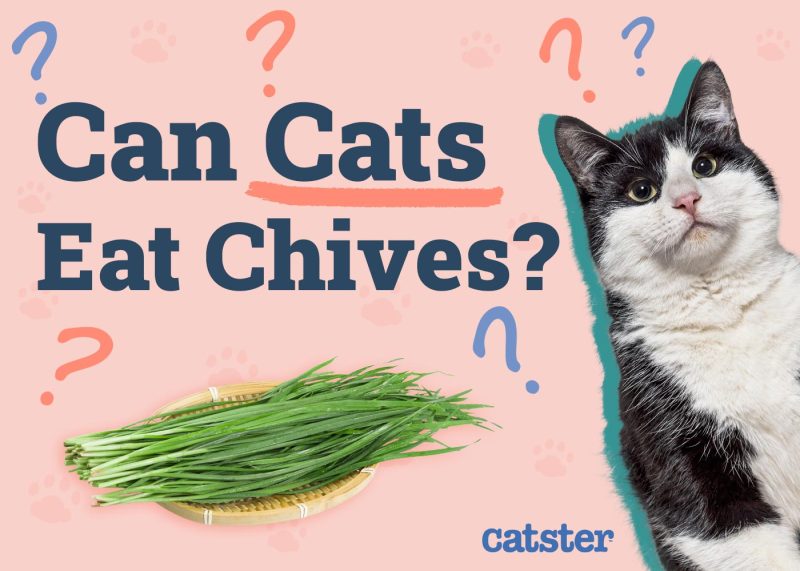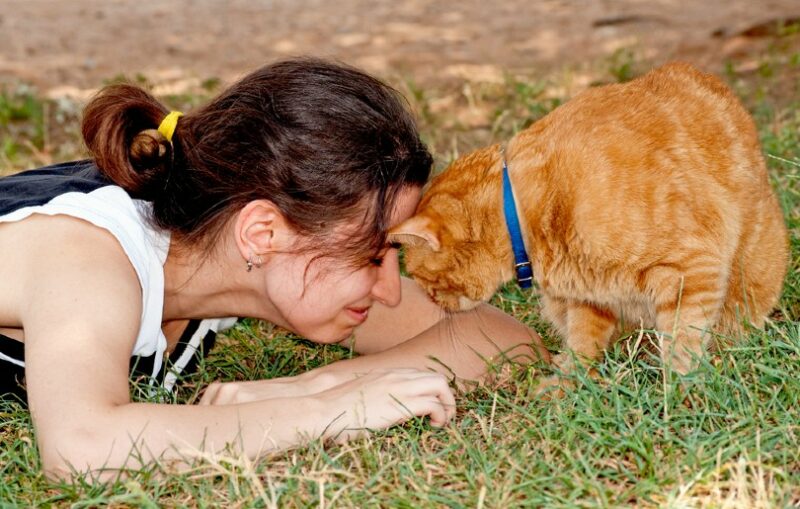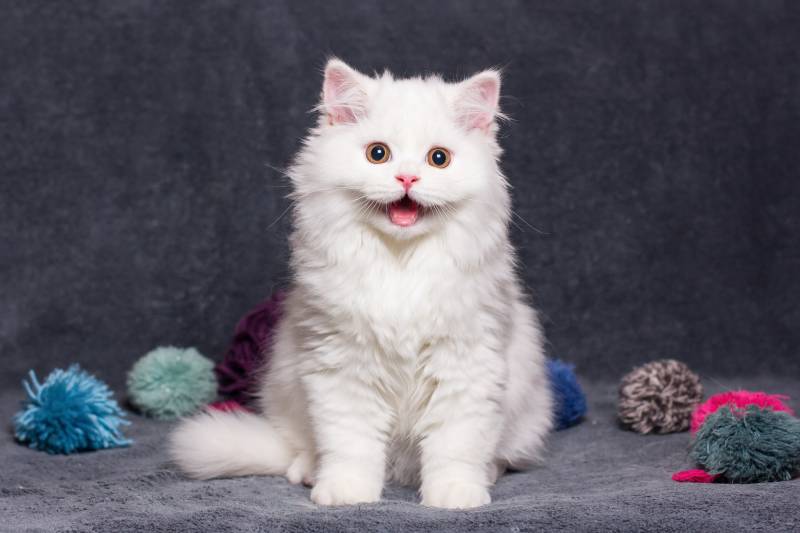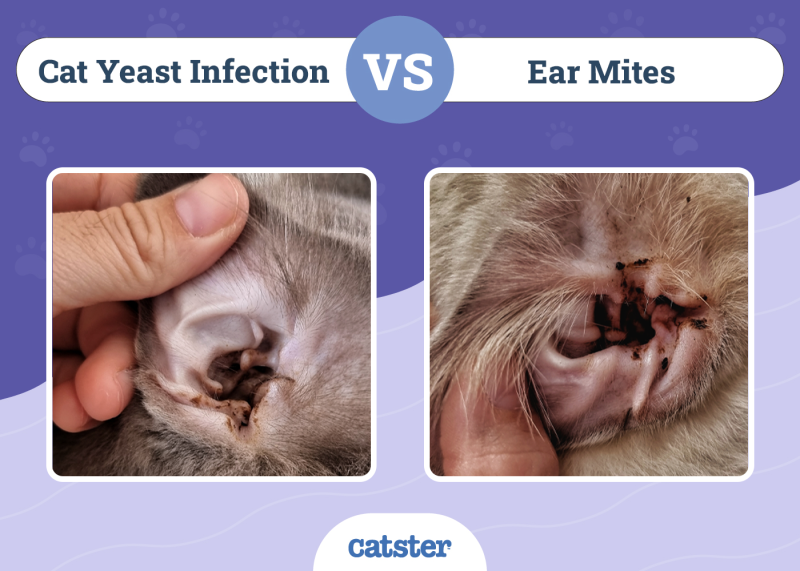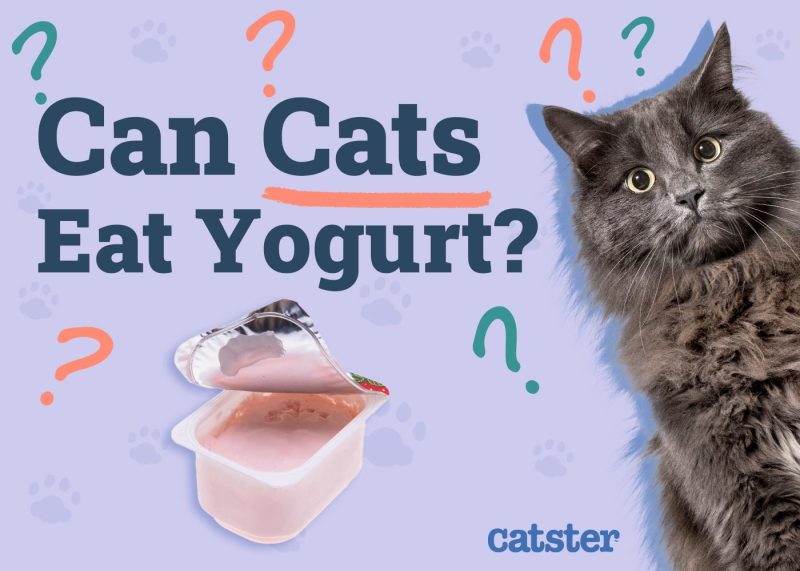In this article
View 3 More +In the wake of heightened health awareness, hand sanitizers have become a staple in households worldwide. While they offer a convenient way to eliminate germs from our hands, pet owners, particularly cat owners, face a unique set of challenges. Keep reading as we discuss what hand sanitizer is, how it works, and the potential dangers of using it around your cat so you can keep them healthy and safe.

How Does It Work?
Hand sanitizers work by killing or inactivating microbes, including bacteria and viruses, on the skin. The primary active ingredient in most hand sanitizers is alcohol, typically either ethanol, isopropanol, or a combination of the two. The effectiveness of hand sanitizers depends on the concentration of alcohol, and most experts recommend using a product with at least 60% alcohol for maximum efficacy.
Alcohol can break down proteins and disrupt the lipid membranes of microorganisms in a process called denaturation. It effectively breaks apart the proteins and the cell membranes, destroying the organism. Alcohol evaporates quickly at room temperature, which helps hand sanitizers dry quickly upon application, leaving hands feeling clean. It doesn’t leave a coating on your hands and works immediately.
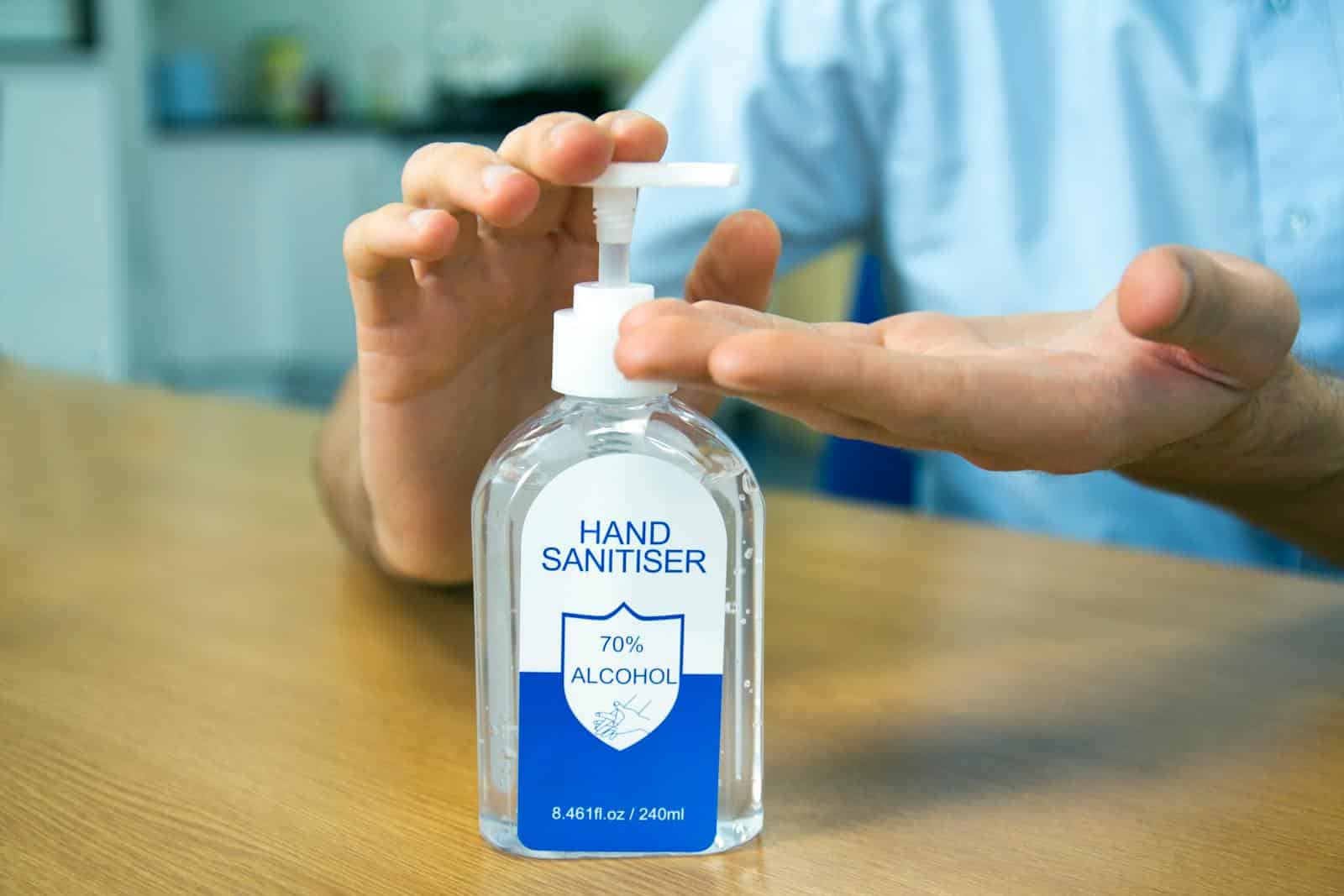
The Different Types of Hand Sanitizers
1. Alcohol-Based Hand Sanitizers
- Ethyl Alcohol
Ethanol is the most common type of alcohol used in hand sanitizers because it’s effective against a wide range of bacteria and viruses.
- Isopropyl Alcohol
Isopropanol is another common alcohol used in sanitizers. It has a similar effectiveness to ethanol but can be more drying to the skin.
2. Alcohol-Free Hand Sanitizers
- Benzalkonium Chloride
Benzalkonium chloride is a common active ingredient in alcohol-free hand sanitizers. It doesn’t dry out your skin as badly as traditional sanitizers, but it’s not as effective against certain bacteria and viruses.
- Triclosan or Triclocarban
Triclosan and triclocarban were once common in hand sanitizers and soaps but are less common now due to concerns about contributing to antibiotic resistance and not being more effective than alcohol or soap and water.
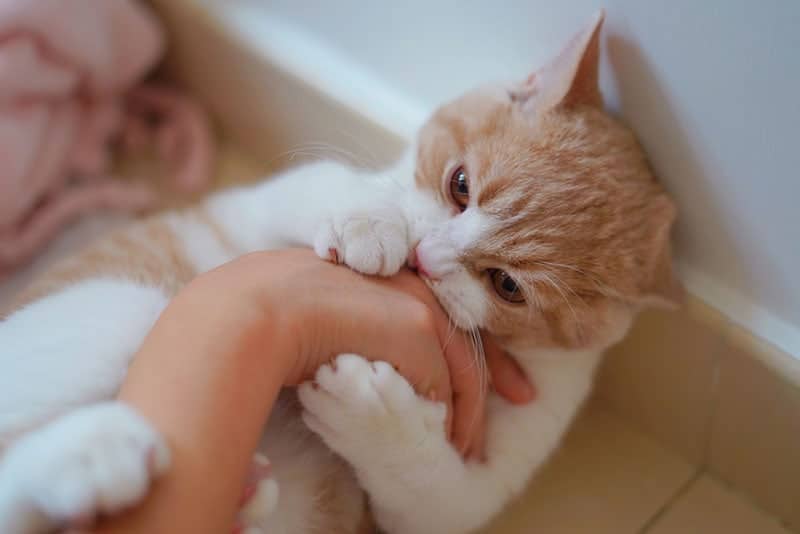
3. Specialty Hand Sanitizers
- Natural or Organic Sanitizers
Natural or organic sanitizers claim to use natural ingredients and often avoid synthetic fragrances or additives. However, their effectiveness can vary, and you’ll need to read the labels carefully if you intend to use them to safeguard against specific viruses, including norovirus and the COVID-19 virus.
Moisturizing Hand Sanitizers
Moisturizing hand sanitizers include added ingredients like aloe vera or glycerin to counteract the drying effects of alcohol and can be a good choice for people with sensitive skin.

Is Hand Sanitizer Safe to Use Around Cats?
Alcohol-Based Hand Sanitizers
Alcohol can be toxic to cats if ingested, so there’s the risk of them licking off residue on your hand. Ethanol, isopropanol, and n-propanol can all be harmful in sufficient quantities, so it’s a good idea to wash your hands with soap and water to remove any sanitizer residue before interacting with your pet if your cat tends to lick your skin.
Alcohol-Free Hand Sanitizers
While less drying and potentially less irritating to human skin, benzalkonium chloride can be toxic to cats. Ingestion can cause oral and gastrointestinal irritation, drooling, vomiting, and difficulty breathing. Triclosan and triclocarban can also be harmful to cats. Triclosan in particular has been linked to several health problems in cats. Considering their potential toxicity, it might be better to avoid these sanitizers if you frequently handle your cat.
Specialty Hand Sanitizers
While natural or organic sanitizers might be gentler on human skin, natural ingredients can still be toxic to cats. Essential oils, for example, are common in natural products and can be incredibly harmful to felines. Always check the ingredient list for any components known to be toxic to cats before using them around your pet.
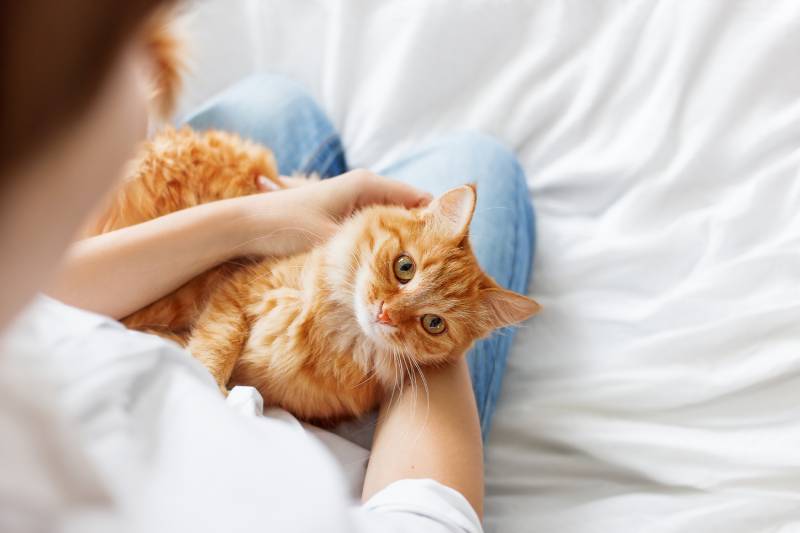

Frequently Asked Questions
Is It Safe to Use Hand Sanitizer Around My Cat?
Yes, it is generally safe to use hand sanitizer around cats. However, it’s important to let it dry completely or wash your hands before interacting with your cat to minimize the risk of your cat ingesting or coming into contact with harmful chemicals.
Can Cats Be Allergic to Hand Sanitizer?
While allergies to hand sanitizer are not common in cats, they might react to certain ingredients. Watch for signs of irritation or discomfort after using a new product, and contact a vet if you notice any.
What Should I Do If My Cat Licks Hand Sanitizer Off My Skin?
If your cat licks a small amount of hand sanitizer off your hand, they might experience mild gastrointestinal upset. However, if they ingest a significant amount or show signs like excessive drooling, vomiting, or lethargy, contact your veterinarian immediately.
If you need to speak with a vet but can't get to one, head over to PangoVet. It's an online service where you can talk to a vet online and get the advice you need for your pet — all at an affordable price!

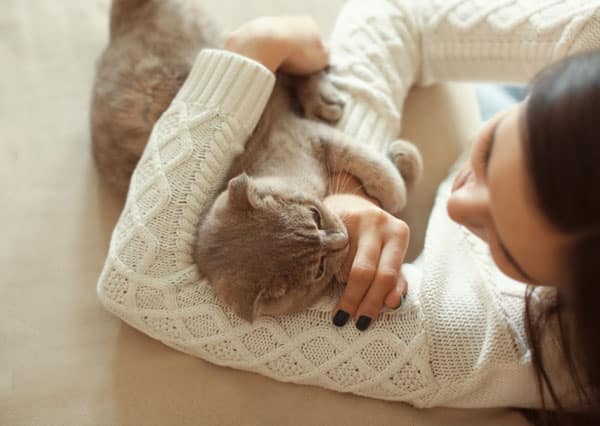
Can the Smell Of Hand Sanitizer Affect My Cat?
Some cats may be sensitive to strong smells, including those from hand sanitizers. If you notice your cat avoiding you or showing signs of distress after you’ve used hand sanitizer, consider using a fragrance-free product or thoroughly washing your hands before interacting with them.
How Can I Keep My Cat Safe When Using Hand Sanitizer?
To keep your cat safe, use hand sanitizer sparingly and only when necessary. Let it dry completely, and consider washing your hands with soap and water before touching your cat. It’s also a good idea to store hand sanitizer bottles out of reach to prevent accidental ingestion.
Are There Any Cat-Friendly Alternatives to Hand Sanitizers?
For general hand cleanliness around your cat, frequent handwashing with soap and water is a safe and effective alternative. If you need to use hand sanitizer, choose one with minimal added fragrances or dyes.

Conclusion
Many of the hand sanitizers that you find in the store today are alcohol based, with most using ethyl alcohol as the main ingredient. They work by breaking down proteins and disrupting the lipid membranes of microorganisms, which kills them. The more alcohol a product contains, the better it works, and most experts recommend aiming for at least 60%. However, alcohol makes many people’s hands dry, and they might seek non-alcohol-based options, but these often contain ingredients that are also harmful to cats, like essential oils and triclosan.
When using hand sanitizer, always let it dry completely before touching your cat or even wash your hands if possible. If you notice your cat having a negative reaction after you use it, discontinue use immediately, and contact a vet if signs persist.
Featured Image Credit: Anna Shvets, Pexels
